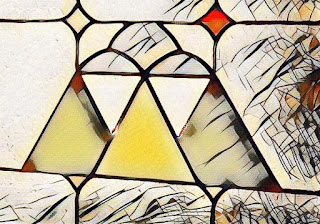Saturday, May 05, 2012
 I’ve been reading from the new book The Burg: A Writer’s Diner by Marybeth Slonneger, and I find it quite incredible in many ways. First, I should say, my own story Saturday Morning is in it, and I’m very proud of it though it may not be the best of stories or even the best of mine. It is, at least, an accurate (or true to what I know) statement of what Actualism was/is and how it contrasted with the Writer’s Workshop.
I’ve been reading from the new book The Burg: A Writer’s Diner by Marybeth Slonneger, and I find it quite incredible in many ways. First, I should say, my own story Saturday Morning is in it, and I’m very proud of it though it may not be the best of stories or even the best of mine. It is, at least, an accurate (or true to what I know) statement of what Actualism was/is and how it contrasted with the Writer’s Workshop.
The book is full of pictures, stories, poems and memories of people who were associated with Hamburg Inn #1 and #2, restaurants in Iowa City which were owned by a single family, the Panthers. The pictures are excellent and provide a snapshot of all kinds of working people in Iowa City in the last sixty or seventy years. I’m proud to share space in the book with poets and writers, workshop and non-workshop, some of whom are friends of mine, like Dave Morice, Morty Sklar and Karen Kubby. Some of their accounts mention Actualists and the Workshop and their relationship with various bars and restaurants in the area. This was most interesting to me. I remember the Workshop writers’ bar as one called Dave’s Foxhead (at this place one night, a patron berated me for putting a quarter in a jukebox and playing Elvis’ Don’t Be Cruel; he said Elvis was a mean racist drunk pill-popper and I was an ignorant hick for supporting him even indirectly with a quarter). But actually, I think it’s a mistake to compartmentalize people as freely as some people have a habit of doing. I’ve always disdained statements that associate all Iowans with corn, all workshop poets with a certain bar, or one restaurant with any certain demographic of people. I unfortunately can be as guilty of this as anyone, defining actualists as anti-workshop, opposed to the effete snobbery of workshop poetry, when in reality we are dealing just with people here, and poems, and sometimes the lines are blurred.
The Hamburg Inn, as the book emphasizes, was the kind of place that concentrated on making excellent burgers day in and day out, and really treated all visitors with the same respect and friendliness, no regard for whether you were workshop, millionaire, scruffy beatnik, whatever. Somewhere along the way it became the “place to go” for presidential candidates; the book makes that clear, but I take that more as a product of these candidates seeking out the “everyman,” than this restaurant bragging about its important role in history. The irony of it was that very democratic aspect of it – that, nose to the grindstone, they served the same consistent and excellent food to students, beatniks and presidents alike. Their fame was foisted upon them as a natural result of this.
So then, my own relationship to the place was a little more complex than I let on in the story. When I arrived in Iowa City I actually enrolled in the university and took a course with a workshop writer, but he held classes in the Mill (a writer’s bar) and I was allergic to smoke, and I was miserable and dropped out for six years. In that time I actually helped some friends start a vegetarian hippie restaurant, Stone Soup, and at one time convinced them to let me run the breakfast shift which made us the main competition, or at least direct competition, for Hamburg Inn. I was a lousy cook, actually inspired on some days but bleary-eyed on others, inconsistent, I made the Hamburg Inn look good. And I still loved Hamburg Inn, in spite of everything. I was no longer writing. I’d come back from a year-and-a-half hitchhiking trip, well documented on these blogs, but some workshop kid borrowed my journal and lost it. I hadn’t even processed it yet, and couldn’t bring myself to write about it.
The Actualists were my friends though, because they like me had rejected the workshop in favor of the puddles of real life, the everyman’s pancake, the dirty ashtray of my story. Now, looking back, I’m proud to have known them and witnessed some of their antics, and in some cases, fed them breakfast. It was a crazy time. But I didn’t write poetry back then, didn’t even try. And now I look back and I’m glad that somebody, anybody, is documenting the Actualists and at least telling about what happened, what they did and had. This book is a start. There isn’t much written about them, though I’ll try keeping up with it in this blog; as it turns out, Iowa City does remember, perhaps more than I’d thought. Back to the book though. I enjoyed the photojournalism. I loved the tour of writers, all kinds, all of whom, after all, had enjoyed the food. There are some people, I think, who don’t appreciate that “writer’s” angle; maybe to them it was a “non-writer’s” place. But any place in Iowa City is a writer’s place; it’s part of the territory. I wish Marybeth well with the book. Profits go to Johnson County Heritage Museum, which is also honorable, I think. Document it. Iowa City is one cool place, and it’s worth it.
Comments:
Post a Comment




